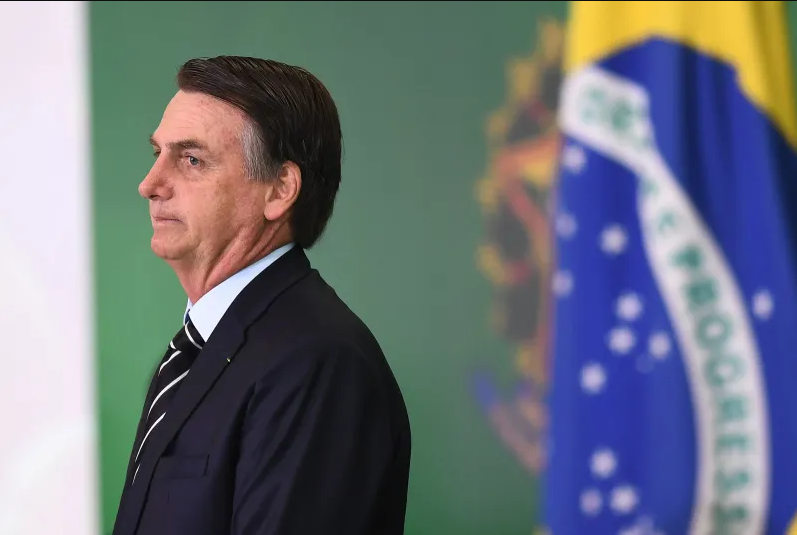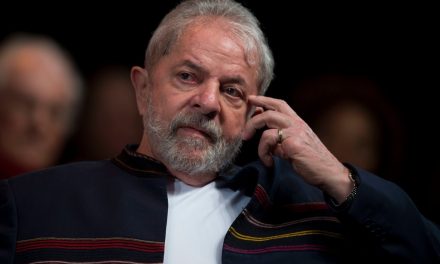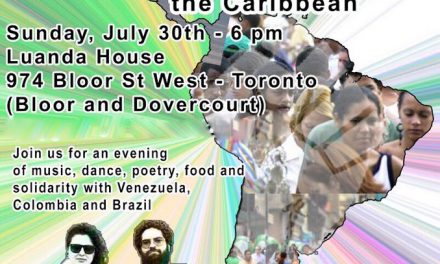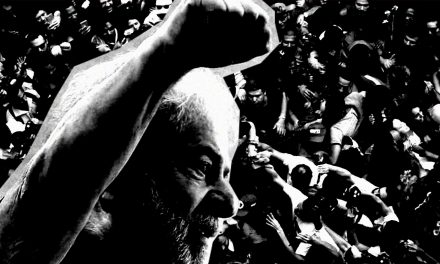Workers In The US And Brazil Are Standing United Against Jair Bolsonaro
January 3, 2019
WASHINGTON — Workers in the United States and Brazil are coming together to speak out against the recently inaugurated Brazilian president, Jair Bolsonaro, even as the Trump administration touts him as a champion of human rights and democracy.
The American Federation of Labor and Congress of Industrial Organizations, the International Labor Rights Forum, United Steelworkers, and the Food Chain Workers Alliance, among others, all signed a statement, originated by the Center for Economic and Policy Research, along with Amazon Watch, the AFL–CIO, and Friends of the Earth. The statement, put out ahead of Bolsonaro’s Jan. 1 inauguration, voiced “deep concern” over policies the president-elect has vowed to pursue.
Bolsonaro, as the statement notes, has said: that he believes descendants of Brazil’s enslaved people aren’t fit to reproduce; that he would hope that, if he had a gay son, that son would die in an accident; and that a woman lawmaker didn’t deserve to be raped. He has threatened to abolish land rights over indigenous territories. On his first day in office, he made it next to impossible for land to be identified for indigenous communities and said LGBTQ rights were no longer to be considered by his new human rights ministry. Brazil’s new minister of women, family, and human rights, an evangelical pastor, tweeted, “Attention, attention! It’s a new era in Brazil: Boys wear blue and girls wear pink!”
The Trump administration has repeatedly stressed Brazil’s democratic transition of power, and readouts from Secretary of State Mike Pompeo’s meetings with Bolsonaro and Brazilian Foreign Minister Ernesto Araujo stressed that this Brazilian administration would work with the United States to push for human rights in Cuba, Nicaragua, and Venezuela. Bolsonaro beat the leftist Workers’ Party, long in power and ensnared by corruption scandals, last October.
“Ideologically the Bolsonaro administration is very similar to the Trump administration,” said Marselha Gonçalves Margerin, a human rights lawyer, noting that it is unlikely that the Trump administration would push back on issues of social justice in Brazil. But, she said, “If civil society in Brazil has some allies, they will come from the social justice, the workers’ movement in the United States.”
Workers’ rights groups have already thrown their hats in the ring.
The AFL–CIO, for one, has a “longstanding solidarity relationship with the Brazilian labor movement,” said Brian Finnegan, the organization’s global workers rights coordinator. “A lot of the comments he made as a candidate are very clearly aimed at the left, at unions.” Finnegan noted that the AFL–CIO has been trying to raise the visibility of issues in Brazil for a couple of years, including by sending a letter to then-president Barack Obama when his Brazilian counterpart, Dilma Rousseff, was being impeached, about concerns over that process.
But it isn’t just the AFL–CIO. Workers’ and farmers’ rights groups made up roughly a fifth of the statement’s signatories.
The connection between Bolsonaro’s potential plans to slash environmental safeguards and the fate of the rights of landless workers has made for an effective rallying point.
“We work with lots of different coalitions and alliances, both national and international. One of the things that we work on and believe in is food sovereignty and the rights of peasants and landless and landed people,” Jeannie Economos, a coordinator at the Farmworker Association of Florida, which signed the statement, told BuzzFeed News. “One of our sayings is that farmworkers are just farmers without land.”
Economos’s association is part of La Via Campesina, an organization founded in the early 1990s that calls itself the international voice of the peasant. Through that organization, she explained, her group is in touch with Brazil’s Landless Workers Movement, or MST in Portuguese.
“The nickname now that’s pretty popular for Bolsonaro is ‘Tropical Trump,’” said Jim Goodman, board president of the National Family Farm Coalition. “Small farm organizations have seen the problems Trump’s policies have caused here.” Asked what policies he thought the two had in common, Goodman pointed to denying the impact of climate change and the threat that the Bolsonaro administration poses to the environment.
The National Family Farm Coalition is also part of La Via Campesina and has “always worked with small farms, including MST in Brazil.” The MST, he said, has been targeted. “That concerns us a lot. Not just because of the environmental implications, but because of tragedies that will occur to these landless peasants.” Goodman said his group will be watching developments in Brazil closely. “We consider ourselves to be close allies of MST. Their struggles are our struggles.”
The MST is another important reason that opposition to Bolsonaro in the United States comes from various workers’ groups.
“One of the largest, most well-organized resistance to what Bolsonaro is trying to do is the MST,” said Jeffrey Frank, national coordinator of Friends of the MST, a network of individuals and organizations that, as the name suggests, strive to back Brazil’s landless workers. Frank says that the MST has been singled out by Bolsonaro, who referred to them as terrorists.
Frank says that a “grassroots response” in the United States to the Bolsonaro administration is in “more nascent, early stages,” but there nonetheless. And Finnegan noted that the AFL–CIO would be following, and perhaps get involved in, steps the newly sworn-in Democratic House takes.
James Green, the founder of the National Network for Democracy in Brazil, told BuzzFeed News that he hopes that because labor rights, environmental rights, and LGBTQ rights are often targeted by the same forces, that advocates can show “understanding and solidarity.”
“We intend to try to mobilize the different NGOs and civil society organizations across [the United States] to engage these questions,” Green said, adding that he hoped to bring leaders of social movements to the United States.
But the landless workers of Brazil — and those who put their names to paper to show support for them in the United States — are still the minority. The Trump administration itself doesn’t seem concerned, painting the concern as having to do with “older statements that were made many years ago,” as one senior State Department official put it ahead of Pompeo’s trip. It would take a “huge, catastrophic event in Brazil” for people in Washington beyond these preexisting civil society alliances to care, Margerin believes.
And perhaps it would take that for more people in Brazil to care, too.
“Resistance is very small,” said Brian Winter, vice president for policy at Americas Society/Council of the Americas. “This is a guy that has a lot of power. The percentage of society that’s going to stand up and scream if his government increases violations of human rights or steps on democratic institutions — the number of people who are going to scream is relatively small. Especially if the economy does well. And all indications at this point are that it will.”





